‘Prisoner of conscience’: Tasmania forestry protester will spend 70 days in jail before sentencing
An Australian man has instructed his lawyers to actively pursue a maximum penalty for two charges he is facing.
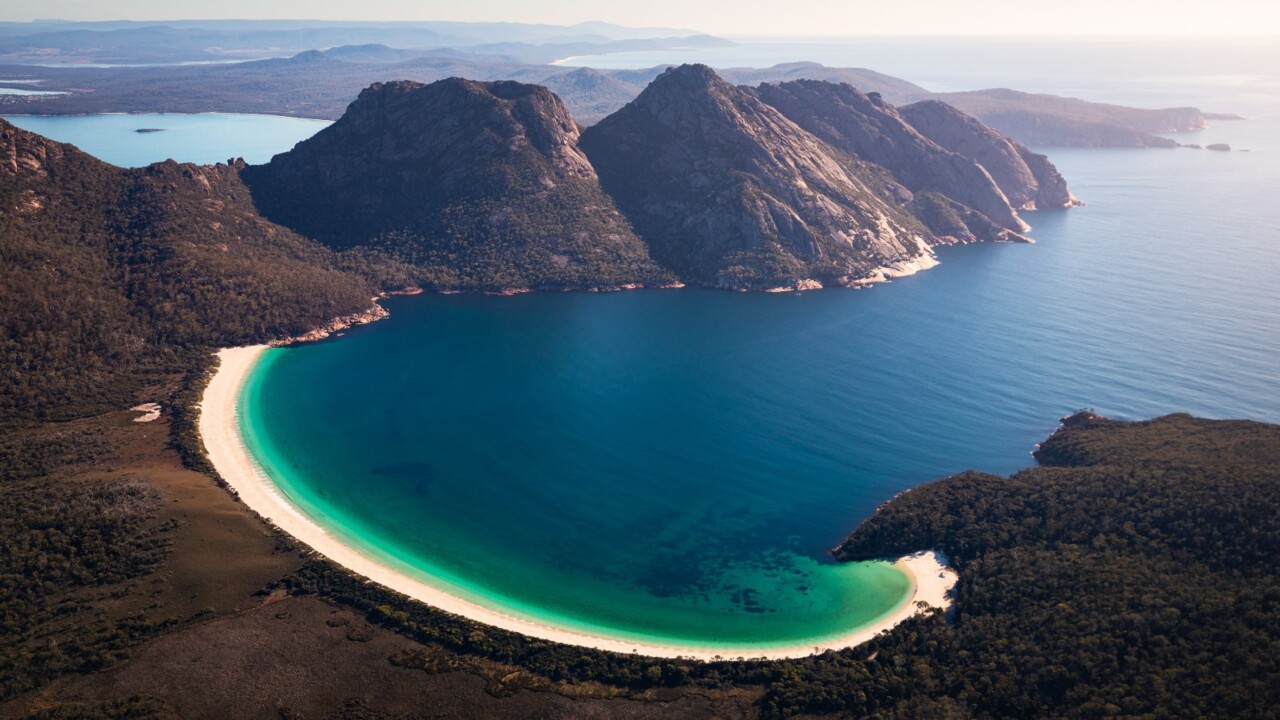
A criminal lawyer’s job is generally to prevent their client from going to jail – but one Australian man has asked his lawyers to do the opposite.
Syed Ali Imran Alishah, a Tasmanian anti-forestry protester, has instructed his lawyers to actively pursue a maximum penalty for two trespass charges amid a 70-day presentencing jail stint for the offences.
The anti-logging protester claims he warned police he would reoffend after a trespass charge last month, and he did just that.
Alishah, who has launched a hunger strike behind bars, was arrested and charged twice following demonstrations at a logging coup in February.
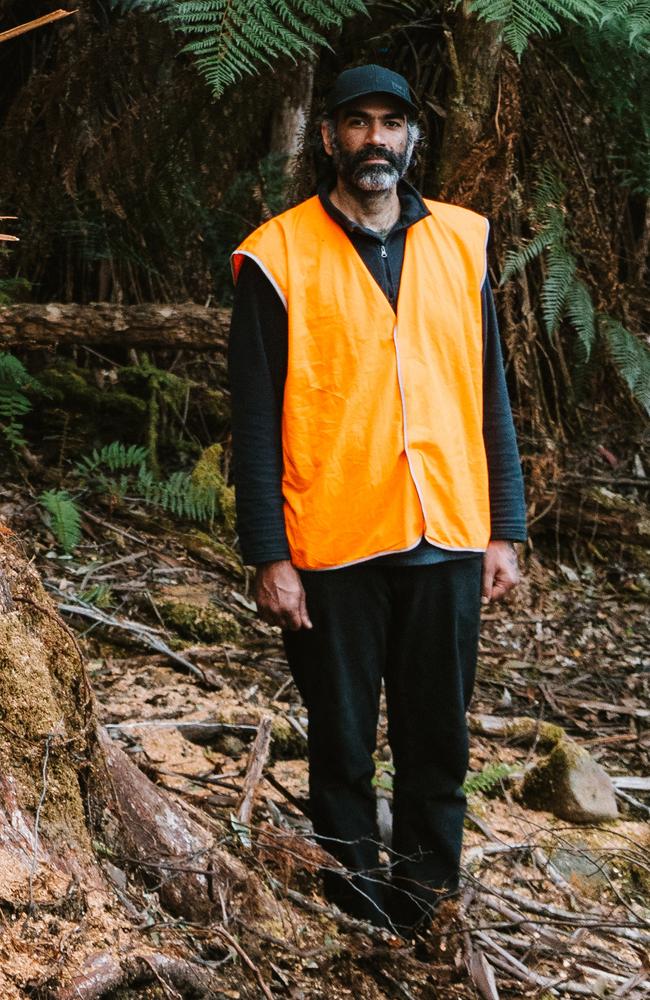
Alishah has been in custody since February 19, on two charges of trespass relating to demonstrations at a logging coup in the Styx Forest, just over an hour west of Hobart.
He has now instructed his legal council to pursue the full punishment recently enacted by the state’s new anti-protest laws.
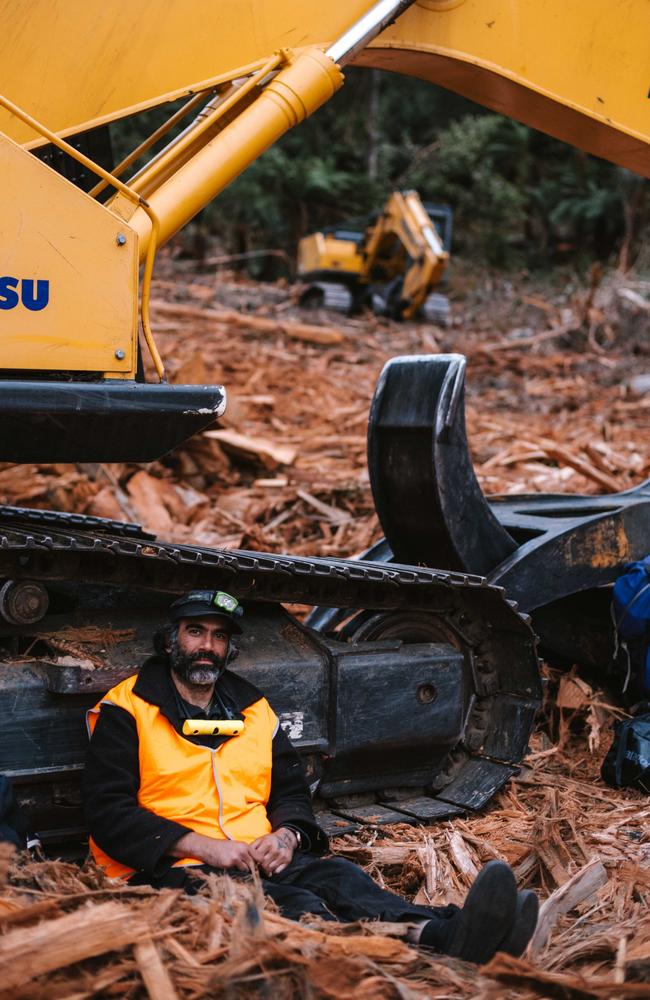
The environmental activist first joined the Bob Brown Foundation in protest on February 16 following the discovery of Tasmanian devil scats near the coup.
According to a statement by his counsel, Alishah told police that he would not voluntarily leave the coup, nor would he comply with any direction not to return.
The statement further added he informed officers he would not comply with any police bail conditions that restricted his ability to protest logging activities.
Despite this, his counsel claims he was arrested and released on bail on the condition that he not return to any permanent timber production zone land owned or operated by Sustainable Timber Tasmania – a state government-owned forestry operation.
Alishah returned to the protest site on February 19, and was again arrested, charged and processed by a magistrate.
He pleaded guilty to two counts of trespass and again informed the court that he intended to resume protesting if released.
The joint statement from The Cangelosi Firm and Logan and Partners said: “He also invited the learned Magistrate to impose the maximum custodial penalty for an offence of trespass involving disruption to business activity, on the basis that this disruption was premeditated, wilful, and inevitably going to be repeated if logging activity should continue.”
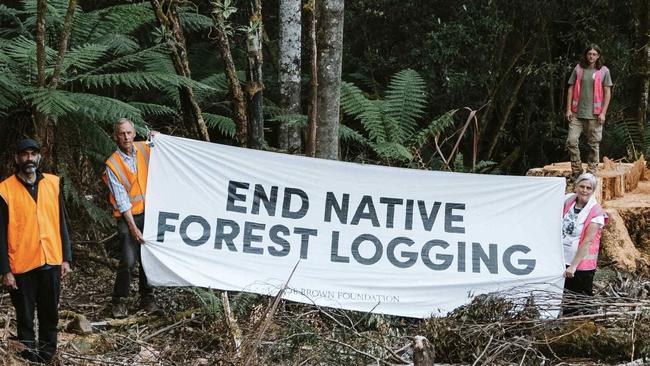
The prosecution argued Alishah presented a serious risk of injury to himself, citing the use of bolt cutters needed to cut a restraint attaching him to logging machinery.
Alishah and his counsel did not accept that a significant risk of injury arose from the restraint or removal method. Still, as a result, Alishah was remanded to reappear in court on April 29.
Alishah has now instructed his counsel to actively pursue the maximum legal sentence for his crimes under the state’s new laws to quell protest activity.
Under the controversial Workplace Protection bill passed in 2022, a community member who obstructs access to a workplace as part of a protest could face 12 months in prison, a community member protesting the destruction of old-growth forests on a forestry site could face a penalty of more than $13,000 or two years in prison, and an organisation supporting members of the community to protest could be fined more than $45,000.
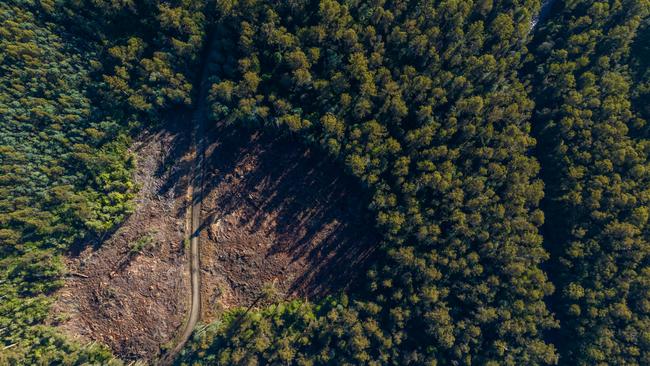
Fabiano Cangelosi told news.com.au that Alishah instructed his counsel to chase the maximum legal penalty because he felt it “necessary to take this legislation to its logical conclusion to see what result it produces.”
“Until we do that, we don’t quite know how bad the law is – it’s only when we take the law to its logical conclusion that we can really see what kind of effect it has,” he added.
“It’s a significant act of bravery.”
“It’s simply a logically consistent approach to say that if you believe in what you’re doing, that is to say you’re protesting something serious, and if you’re honestly telling the court you’re going to go back, why would it not be a maximum penalty? If you have the courage of your convictions, then that’s the result.”
Hunger strike for better corrections
Alishah is four days into a hunger strike behind bars demanding an end to native logging in Tasmania and improvement the state’s policing and corrections system.
He seeks adequate funding for the Supreme Court and Magistrates Court to expedite hearings for remandees, proper resourcing of correctional services across security classifications, and Tasmania Police urged to cease granting bail to non-compliant protesters.
Mr Cangelosi, a prominent Tasmanian criminal lawyer, described the well-reported state of Tasmania’s corrections system.

“Essentially, we have a corrections system that is chronically underfunded – there are barely enough prison staff for the normal operations of the prison,” he said.
“Because they’re not enough of them, the result is that inmates are simply locked down for hours and hours.”
“There are huge problems in the delivery of therapeutic programs.
“For instance, another inmate I was speaking to this morning needs to complete a therapeutic program before he’s able to be released on parole, but the therapeutic program can’t be delivered.”
Former Greens leader Bob Brown and a fellow protester were also arrested and charged with trespass following the same February 19 Styx Forest demonstration.
They were both bailed on the condition of not entering any state forest until April 29, which they also plan to contest.
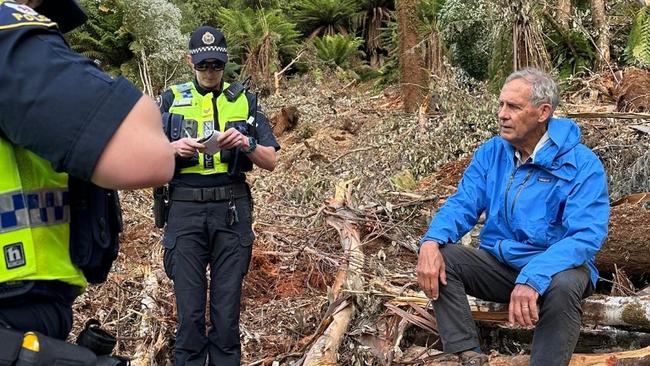
Dr Brown told news.com.au he supported Alishah’s decision, labelling him a “prisoner of conscience”.
“I applaud his stand but am also appalled that he is in jail while those destroying the forests continue to rob future generations of their birthright,” he said.
“Penalties don’t deter people’s consciences. The more draconian the laws get, the more people will come out.”

Dr Brown said his organisation does not oppose the state’s significant plantation logging operations, but it vehemently disputes the need for an expansion into old-growth native forest areas like the Styx Forest.
This week, it was reported in The Australian that Tasmania’s Liberal Premier Jeremy Rockliff is vowing to boost timber supply by logging 40,000ha of native forests protected under the 2012 forestry peace deal – a move tipped to reignite the state’s “forest wars”.
“As a result of both the closure of native-forest industries in WA and Victoria under Labor governments, as well as growing global demand for sustainably produced wood and fibre products, now is the right time to open this wood bank,” Mr Rockliff said.
Dr Brown told news.com.au: “The headlines all over the place now are that the forest wars are back on, but they’ve never been off.”



